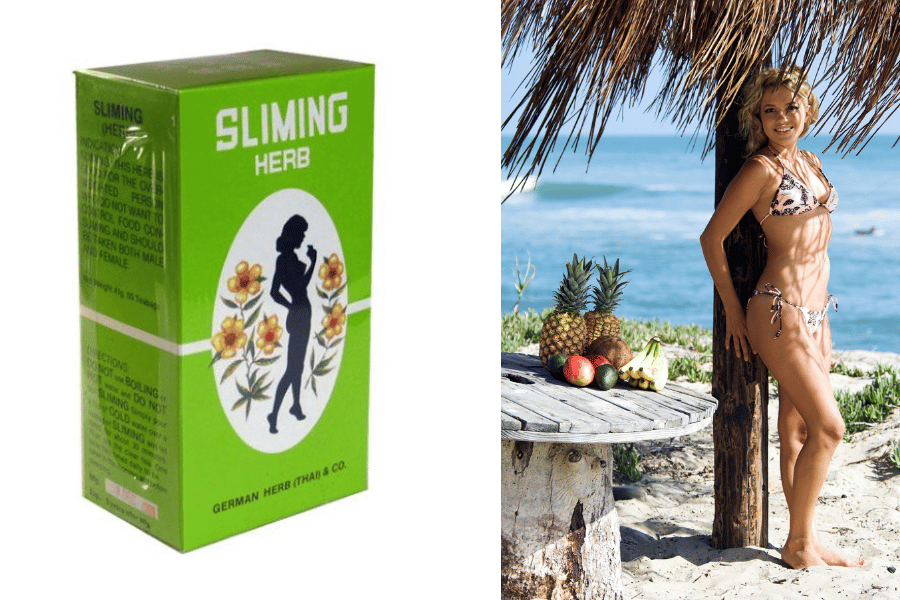In the realm of diet weight loss, the role of tea, especially during the winter season, is both intriguing and significant. This article embarks on a journey to explore the effectiveness of tea for diet weight loss, focusing on a pressing question for many health enthusiasts: “How long does a winter diet weight loss tea take to hit a plateau?”
The use of tea as a dietary aid is not just a modern trend but is rooted in centuries of tradition, backed by emerging scientific research. In the context of winter, when the body’s metabolism often slows down due to colder temperatures, the choice of tea can play a pivotal role in maintaining and enhancing weight loss efforts.
This exploration will delve into the science behind using tea for weight loss, the various factors influencing its effectiveness, and the types of tea that are particularly beneficial for a winter diet. Additionally, we will examine strategies to break through the inevitable plateaus in weight loss and answer some frequently asked questions about integrating tea into a winter weight loss regimen.
By weaving through these topics, the article aims to provide a comprehensive guide on using tea for diet weight loss during winter, ensuring readers are well-equipped with knowledge to make informed decisions in their weight loss journey.

Understanding the Role of Tea in Winter Diet Weight Loss
The role of tea in aiding diet weight loss during winter is multifaceted and supported by scientific evidence. This section explores the mechanisms through which tea contributes to weight loss and highlights its potential benefits in a winter diet regimen.
Boosting Metabolism
One of the primary ways tea aids weight loss is by enhancing metabolic rate. In the cold months of winter, the body’s metabolism can slow down, making weight loss more challenging. Certain teas, like green tea, are rich in antioxidants like epigallocatechin gallate (EGCG), which have been shown to boost metabolism. According to Dr. Alice Martin, a renowned nutritionist, “Green tea’s catechins, combined with caffeine, can significantly increase energy expenditure, aiding in weight loss.”
Appetite Control
Tea can also play a role in appetite regulation, a crucial aspect of weight management. Ingredients in certain herbal teas have been found to help reduce cravings and promote a feeling of fullness. For example, peppermint tea is known for its ability to naturally suppress appetite, making it easier to stick to a healthy diet during winter.
Winter Weight Loss Benefits
Incorporating tea into a winter diet offers several specific benefits:
- Thermogenic Properties: Some teas, like oolong and black tea, have thermogenic properties, meaning they help the body generate more heat, which can aid in burning more calories in cold weather.
- Hydration: Proper hydration is key in weight loss, and drinking warm tea during winter helps maintain hydration levels, which can be challenging in colder climates.
- Mood Enhancement: The winter season can often lead to mood dips, which can affect eating habits. The natural compounds in tea can help improve mood and reduce the likelihood of emotional eating.
The role of tea in a winter diet for weight loss is significant. Its ability to boost metabolism, control appetite, and provide additional winter-specific benefits makes it an ideal dietary supplement for those looking to lose weight during the colder months.

Factors Influencing the Effectiveness of Diet Weight Loss Tea
The effectiveness of tea for diet weight loss is influenced by several factors, making it important to understand these variables to optimize its benefits, especially in the context of a winter diet. This section discusses the key factors that impact how long it might take for a winter diet weight loss tea to reach a plateau.
Individual Variations
Every individual’s body responds differently to weight loss strategies. Factors like genetic makeup, metabolic rate, and overall health play a significant role in how effectively tea aids in weight loss. For some, the effects may be rapid and pronounced, while for others, it might take longer to observe significant results.
Types of Tea
The type of tea consumed is crucial in determining its impact on weight loss. For instance, green tea is known for its high antioxidant content, which aids in metabolism and fat burning. On the other hand, herbal teas may offer more in terms of appetite suppression and detoxification. The choice of tea should align with individual weight loss goals and preferences.
Lifestyle Choices
Lifestyle factors such as diet, exercise, and sleep patterns significantly influence the effectiveness of diet weight loss tea. A balanced diet and regular exercise enhance the weight loss effects of tea. Additionally, adequate sleep is essential as it affects hormonal balance and metabolism, key components in weight loss.
Consistency and Quantity
The regularity and amount of tea consumption are also important. Consistent and moderate consumption of weight loss tea is likely to yield better results compared to irregular or excessive intake. It’s important to find a balance that works for your body without overdoing it.
Environmental Factors
In winter, environmental factors like colder temperatures and reduced sunlight can affect one’s metabolism and mood, which in turn can impact the effectiveness of diet weight loss tea. Adapting tea consumption to these seasonal changes can help in maximizing its weight loss benefits.
Guidance for Optimizing Tea Usage
To optimize the use of tea for diet weight loss:
- Choose the right type of tea based on personal health goals.
- Maintain a balanced lifestyle with a healthy diet and regular exercise.
- Be consistent in tea consumption and mindful of the quantities.
- Adjust tea choices and routines in response to individual body reactions and environmental changes.
Understanding these factors is key in effectively utilizing tea as a tool for diet weight loss, particularly in navigating the challenges posed by the winter season.
Different Types of Tea for Winter Diet Weight Loss
Selecting the right type of tea for diet weight loss during winter is essential for maximizing its benefits. This section presents various tea options suitable for winter dieting, explaining their specific advantages for weight loss.
Green Tea
Green tea is highly recommended for weight loss due to its high levels of catechins, particularly EGCG (epigallocatechin gallate), which boost metabolism and enhance fat burning. Its mild caffeine content also provides a gentle energy boost, making it ideal for cold winter mornings.
Herbal Tea
Herbal teas, such as peppermint, ginger, and hibiscus, are caffeine-free alternatives that aid in weight loss. These teas can help with digestion, bloating, and appetite control. For instance, ginger tea is known for its thermogenic properties, which can be beneficial in increasing calorie burn during winter.
Detox Tea
Detox teas often contain a blend of herbs that support the body’s natural detoxification processes. Ingredients like dandelion or milk thistle can aid liver function, an important aspect of metabolism and weight loss. These teas can also help in reducing water retention, a common issue in winter.
Oolong Tea
Oolong tea, with its unique processing method, offers a rich taste and significant weight loss benefits. It’s known for its ability to increase metabolism and fat oxidation. Drinking oolong tea during winter can provide warmth and aid in maintaining a healthy weight.
White Tea
White tea is the least processed tea and is known for its delicate flavor and high antioxidant content. It has been found to inhibit the formation of new fat cells, making it a great choice for those looking to prevent weight gain during the winter months.
Personal Recommendations
- For those looking for a metabolism boost and enjoy caffeinated teas, green and oolong teas are excellent choices.
- Herbal and detox teas are ideal for those who prefer caffeine-free options and are focusing on digestion and detoxification.
- White tea is suitable for those who are new to weight loss teas or prefer a milder flavor.
The choice of tea for winter diet weight loss depends on individual preferences, weight loss goals, and any specific health considerations. Trying different types of teas can help in finding the one that best suits your needs and preferences for your winter diet.

Strategies for Breaking Through Plateaus with Tea
Hitting a plateau in weight loss is a common challenge, but with the right strategies, including the use of tea for diet weight loss, it’s possible to overcome these standstills. This section shares effective methods for breaking through weight loss plateaus, with a focus on adjusting tea consumption and incorporating other healthy practices.
Adjusting Tea Consumption
- Varying Tea Types: If you’ve hit a plateau, consider switching up the type of tea you’re drinking. Different teas have different benefits, and a change might be what your body needs to kickstart weight loss again.
- Timing Your Tea Intake: Experiment with drinking tea at different times of the day. For instance, having a cup of green tea before workouts can enhance fat burning.
- Increasing or Decreasing Quantity: Sometimes, adjusting the amount of tea you consume can make a difference. However, it’s important to listen to your body and not overconsume, especially caffeinated teas.
Incorporating Other Healthy Practices
- Combining with a Balanced Diet: Ensure your diet is well-balanced with a focus on whole foods. A healthy diet combined with tea consumption can enhance weight loss efforts.
- Regular Exercise: Incorporating regular physical activity, especially strength training and high-intensity interval training (HIIT), can help break through weight loss plateaus.
- Stress Management and Sleep: Stress and poor sleep can hinder weight loss. Practices like meditation, yoga, and ensuring adequate sleep can positively impact weight loss efforts.
Success Stories
Including success stories can be inspiring. For example, John, a 40-year-old office worker, overcame his weight loss plateau by switching to oolong tea and adjusting his meal timings, which complemented his tea consumption and workout routine.
Expert Tips
Consultation with a dietitian or a health expert can provide personalized advice. They can offer insights on how to effectively use tea as part of a broader weight loss strategy and how to overcome plateaus.
Breaking through a weight loss plateau with tea involves a combination of adjustments in tea consumption, lifestyle changes, and possibly expert consultation. It’s about finding the right balance and approach that works for your body and goals.
Conclusion
As we wrap up our exploration of tea for diet weight loss, especially in the context of winter dieting, it’s important to reflect on the key insights gained and provide some final thoughts for those looking to integrate tea into their weight loss journey.
Key Insights
- Variety and Choice: There’s a wide range of teas available, each with its own set of benefits for weight loss. Whether it’s green tea for boosting metabolism, herbal teas for suppressing appetite, or detox teas for aiding digestion, the right choice depends on individual needs and preferences.
- Holistic Approach: Tea can be a valuable component of a weight loss strategy, but it’s most effective when combined with a balanced diet, regular exercise, and adequate sleep.
- Individual Responses: The impact of tea on weight loss varies from person to person. It’s important to listen to your body and adjust your tea consumption as needed.
- Patience and Consistency: Weight loss is a gradual process, and consistent tea consumption, along with healthy lifestyle practices, is key to achieving long-term results.
Encouragement for Readers
For those considering incorporating tea into their winter weight loss plan, it’s worth experimenting with different types to discover what works best for you. Remember, weight loss is a personal journey, and what works for one person may not work for another. Stay patient and consistent, and you are likely to see positive changes over time.
Tea for diet weight loss, particularly in winter, can offer more than just physical benefits; it can be a soothing, warming ritual that nurtures both the body and mind. As you embark on or continue your weight loss journey, consider tea as a potential ally in achieving your health and wellness goals.
Final Thoughts
Tea can be a delightful and effective addition to a winter weight loss diet. With its variety, health benefits, and comforting qualities, it offers a multi-faceted approach to weight management. As you explore the world of weight loss teas, keep in mind the importance of a holistic approach and the value of finding what uniquely works for you.
Frequently Asked Questions (FAQs) About Tea for Diet Weight Loss
Addressing common queries about tea for diet weight loss can provide clarity and help optimize its use, especially during winter. This section aims to answer some frequently asked questions related to this topic.
Q1: How much tea should I drink daily for weight loss?
A: The ideal amount varies depending on the type of tea and individual tolerance, especially to caffeine. Generally, 2-3 cups a day can be effective. However, it’s important to listen to your body and adjust as needed.
Q2: Can I replace meals with tea to lose weight faster?
A: Tea should not be used as a meal replacement. While it can aid in weight loss, it does not provide the essential nutrients that a balanced meal offers. Tea should be consumed as part of a healthy diet.
Q3: Are there any side effects to drinking weight loss tea?
A: When consumed in moderation, weight loss tea is generally safe. However, some individuals may experience side effects like jitteriness or gastrointestinal discomfort, particularly from teas containing caffeine or certain herbs. It’s advisable to start with a smaller amount to gauge your body’s response.
Q4: How quickly can I expect to see weight loss results from drinking tea?
A: Results vary based on individual factors like diet, exercise, and metabolism. While some might notice changes within a few weeks, sustainable weight loss is typically a gradual process.
Q5: Can weight loss tea interact with medications?
A: Some teas can interact with certain medications. It’s important to consult with a healthcare provider if you’re taking medication or have underlying health conditions before starting any new diet regimen, including drinking weight loss tea.
Q6: Does the temperature of the tea affect its weight loss properties?
A: The temperature of tea does not significantly impact its weight loss properties. Whether you prefer hot or cold tea, its benefits remain largely the same.
Q7: How can I choose the best tea for my winter diet weight loss plan?
A: Consider your personal preferences, any specific health goals, and how different teas make you feel. Trying different types and observing your body’s response can help determine the best choice for you.
Related Posts :
- En Keto Drive Acv Nutritional Knockout Keto Drive Acv Vs Vitaraw Organic Apple Cider Vinegar Gummies Tqye
- En Effective Green Tea For Weight Loss 4wru
- En How Keto Gummies Oprahcan Support Your Healthy Lifestyle K7mj
- En Optimal Keto Acv Gummies A Celebrity Favorite For Staying Slim Sxxw
- En Kevin Jamess Remarkable 30 Pound Transformation Fgwc